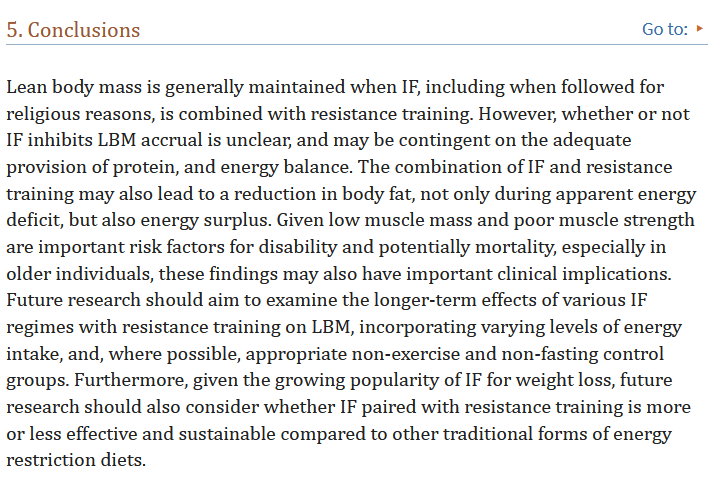Hard to believe I am asking the same questions as seven years ago! Loss of Lean Muscle During Fasting, Old Study My old post came up when I started typing.
I would like to do some extended fasts
Goals at 55+
- Lose more weight without losing muscle
- Build muscle in general (I find heavy groceries, dog food bags are more of a struggle)
- Improve my speed on long bike rides, have enough muscle to start skiing again (20 - 30 years or more have barely skied but find biking helps those muscles)
- Avoid loose skin if possible
Have been Low Carb on and off since March 2017! Anniversary is next week! I have lost about 30 lbs (lost about 25 before I started Keto from my highest weigh). I could still lose another 50 to get to what I consider a good weight. Probably will never happen but I trudge on. Currently have a very short eating window, 11-5 or 6 depending on the day.
When I first started Keto I mainly lost weight through extended fasts, each time I would lose 2-5 lbs (I measure from the day after I refeed or even two days after). I would maintain with Keto in between.
In 2017 I did a lot of five day fasting. I also got a lot of mild colds, almost monthly starting from September 2017 or so until I started supplementing with various things and eventually I stopped fasting and my weight creeped up a little and then more during Covid.
I rarely fast now although I do not find it difficult.
I have lost about 22 lbs since July when I started reducing my eating window and that seems to be working although I have been on a stall since I hit month 7. I know Fung believes Autophagy will help with everything but others and the old study in my initial post make me ask




